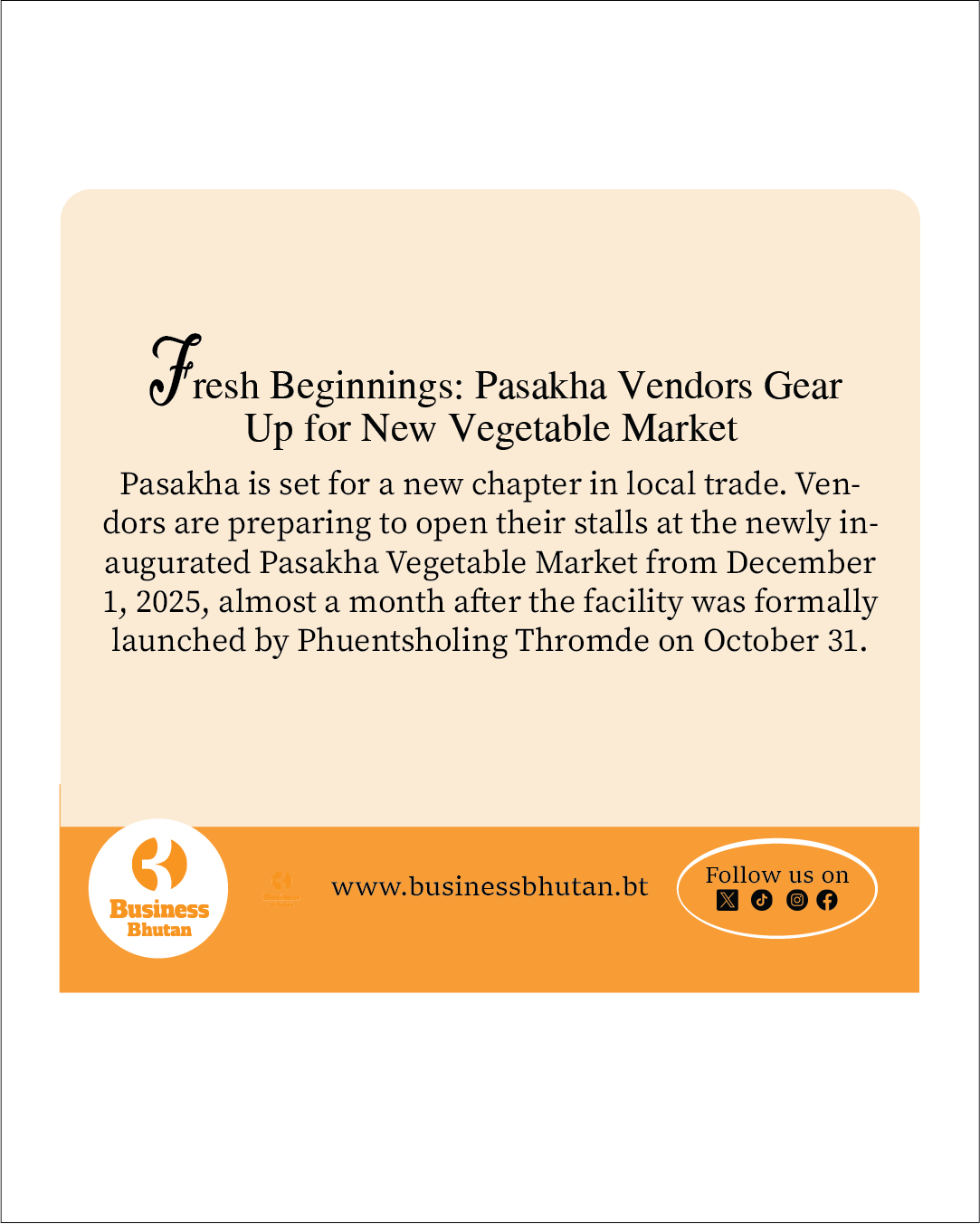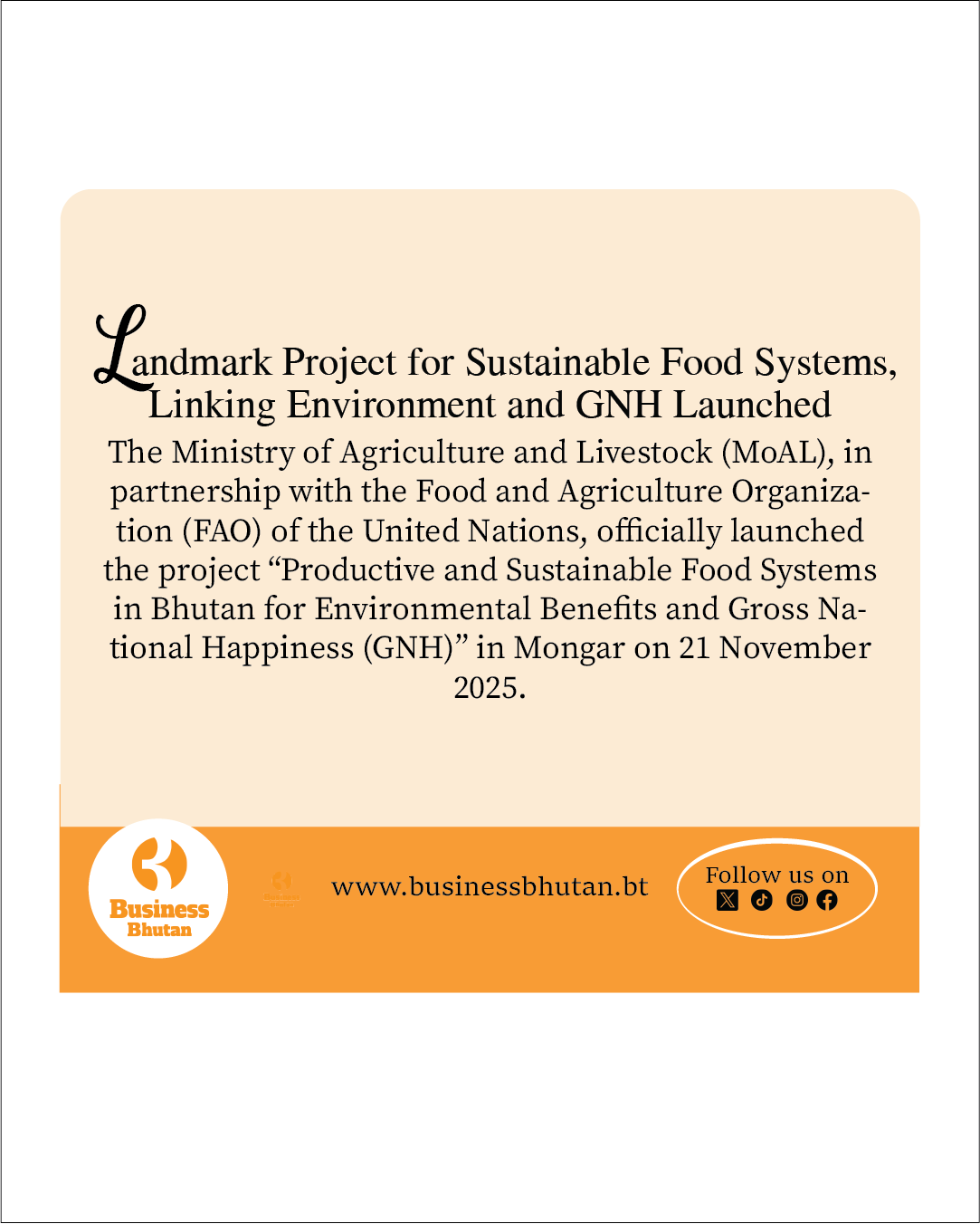The Commercial Agriculture and Rural Livelihood Enhancement Program (CARLEP) have announced a significant financial support package for Koufuku International Limited (KIL), a key player in Bhutan’s dairy sector. The program will provide a loan of Nu 77.055 million KIL, aimed at modernizing KIL’s dairy processing facilities and strengthening the rural dairy value chain.
It is an interest-free loan with long-term support. The loan, structured as a highly concessional, interest-free arrangement with a minimal service charge of 0.38%, will be repaid over a period of 40 years. Notably, KIL will benefit from a 10-year grace period ending on June 30, 2030, during which no repayments are required. Tenzin Lungdhok, marketing manager of KIL, said, “This generous timeframe underscores CARLEP’s commitment to fostering long-term, sustainable development in Bhutan’s rural dairy sector.”
Initially conceptualized as a grant to support KIL’s value addition and farmer empowerment, the support was later transitioned into a loan, given KIL’s ownership by the Druk Holding and Investment (DHI). The marketing manager said that the change was made to ensure sustainable financial planning and investment in upgrading the plant’s infrastructure.
The financial support of CARLEP from grant to loan will address challenges in dairy development, enhancing operational efficiency and capacity. The primary purpose of the loan is to upgrade and replace old equipment within KIL’s processing plant. The current machinery has exceeded its End of Life (EOL), with spare parts increasingly scarce and costly. The marketing manager said, “The existing equipment at KIL has significantly aged and now requires frequent maintenance. Finding original spare parts has become increasingly difficult, and the available substitutes in the market are often short-lived, leading to rising operational costs. Most of the machinery has long surpassed its EOL, and technical support is no longer available.” Therefore, the modernization of plant will enable the plant to boost its daily milk processing capacity from 4,000 liters to 6,000 liters and transition from manual to semi-automated processing systems, significantly improving operational efficiency.
The improvements are expected to generate multiple benefits, including increased processing capacity and reduced operational costs. The upgraded facilities will also enhance product quality and market competitiveness, ultimately providing stable income opportunities for rural dairy farmers according to the officials of the KIL. By facilitating better market access and encouraging youth participation in livestock farming, the project aims to uplift rural livelihoods across Eastern Bhutan.
CARLEP’s past support has already yielded substantial benefits for KIL, notably through the provision of two milk tankers. These assets have improved milk transportation efficiency and hygiene from Milk Collection Centres (MCCs) to the processing plant. The support also contributed to establishing and strengthening MCCs, capacity building for farmers, and improving milk quality standards.
Through these initiatives, KIL has been able to collect milk more efficiently, ensuring a steady supply to the processing plant and fostering a more inclusive dairy sector. The collaboration has empowered farmers, improved rural livelihoods, and promoted sustainable agri-business practices in the region.
Discussions between IFAD, DHI, and CARLEP highlight the ongoing partnership aimed at further enhancing the dairy sector. The upcoming phase of CARLEP is expected to build on existing successes, expanding support for value addition, rural livelihood improvement, and sustainable dairy development in Eastern Bhutan.
The marketing manager said that the Nu 77 million loan from CARLEP marks a significant step toward modernizing Bhutan’s dairy industry and empowering rural communities. With long-term, concessional financing and continued support, KIL is poised to become a more efficient, sustainable, and inclusive dairy enterprise, contributing to the broader goal of rural development in Bhutan.
Livestock farmers from eastern Bhutan, meanwhile, are also getting a sense of market assurance from the KIL. Tshomo from Gomdar, Samdrup Jongkhar, said that KIL is their assured market to supply milk. If KIL do not take their milk, she said, “our milk market will not be sustainable,” adding that season buyers will not take their milk daily.
The dairy farmers of Yadi, Mongar also shared that the KIL has assured disposition for milk supply. Despite some milk getting rejected and failing to meet the quality and offered low price, Karma Tenzin said that there is no market for self-processed dairy products. He said that KIL is an assured source of income for the dairy farmers.
KIL is a pioneering dairy processing company established in 2013 in Trashigang, Bhutan. It was initially formed as a joint foreign direct investment (FDI) venture between the Dairy Hub Incubator (DHI) and SNBL, Japan, with shareholdings of 30% and 70%, respectively. Recently, SNBL exited its ownership stake in KIL on good terms, transferring its shares freely to DHI. As a result, KIL is now entirely owned by DHI.
The dairy plant became operational in 2015, initially collecting 400-500 liters of milk daily from a few dairy farmers’ groups in Trashigang. In its early years, KIL focused on producing Gouda cheese for export to Japan and targeted the school market with yogurt products. Over time, the company expanded its product portfolio to include processed cheese under the brand name “Druk Zambala Cheese,” salted and non-salted butter, stirred and set yoghurts, Gouda cheese, and cottage cheese, establishing itself as a key player in Bhutan’s dairy industry.
Sangay Rabten from Trashigang




![Fresh Beginnings: Pasakha Vendors Gear Up for New Vegetable Market - Duplicate - [#16963] Fresh Beginnings: Pasakha Vendors Gear Up for New Vegetable Market - Duplicate - [#16963]](https://businessbhutan.bt/wp-content/uploads/2025/11/Asset-200.png)











